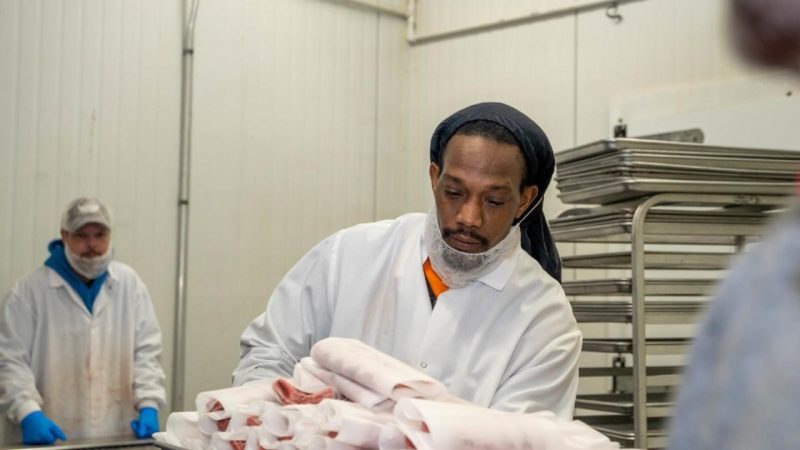In response to growing concerns of a meat shortage, President Donald Trump issued an executive order designating the facilities as “critical infrastructure.” The order, which invokes the Defense Production Act, directs the U.S. Department of Agriculture to “ensure America’s meat and poultry processors continue operations uninterrupted to the maximum extent possible.”
The decision follows the temporary closure of at least 22 meat plants due to coronavirus outbreaks among workers. As a result, national meat processing capacity has fallen by 20 per cent, costing family farmers and ranchers key markets and risking meat shortages at grocery stores.
Though the National Farmers Union (NFU) shares the president’s concerns around maintaining food system infrastructure, the organization is equally concerned with the health and wellbeing of meat plant employees. According to data collected by the Food and Environment Reporting Network, more than 4,000 workers at 85 plants have tested positive, at least 20 of whom have died. Per the executive order, “processors will continue to follow the latest guidelines from the Centers for Disease Control and Prevention (CDC) and the Occupational Safety and Health Administration (OSHA),” though does not indicate if or how those guidelines will be enforced. Additionally, President Trump indicated that he would absolve the plants from liability for illnesses or deaths among workers.
While the administration pursues solutions to protect food security, NFU President Rob Larew urged them not to forget about worker welfare. “Their health and lives are not an acceptable tradeoff for our meat supply, nor are these things mutually exclusive – we must find solutions that protect both.” He recommended that workers be provided with “personal protective equipment and other safeguards, access to testing and treatment, and paid sick leave.”
In the longer-term, he emphasized the need for antitrust enforcement. Both the abuses that workers are enduring as well as the disruptions farmers and consumers are experiencing are a direct result of extreme consolidation in the meat industry,” Larew said. “We hope that this current crisis finally compels Congress and the administration to address the issue of market power in the agriculture industry and promote a diverse and resilient food system.”
Read more in the NFU release.
